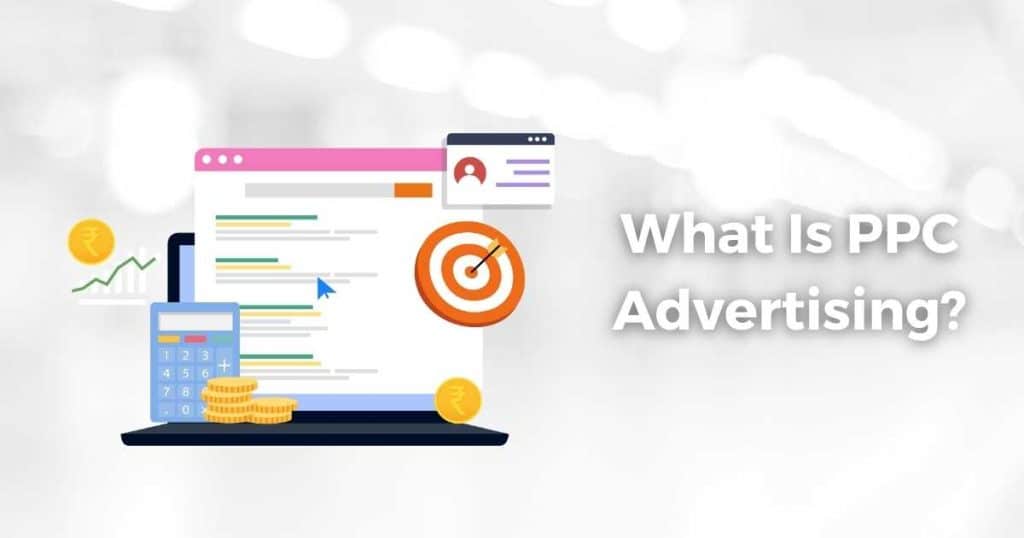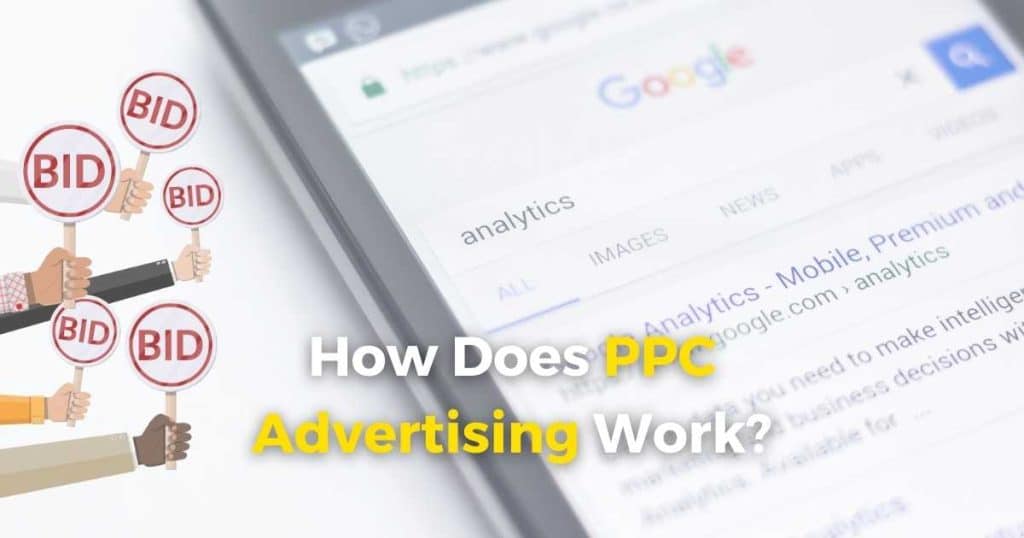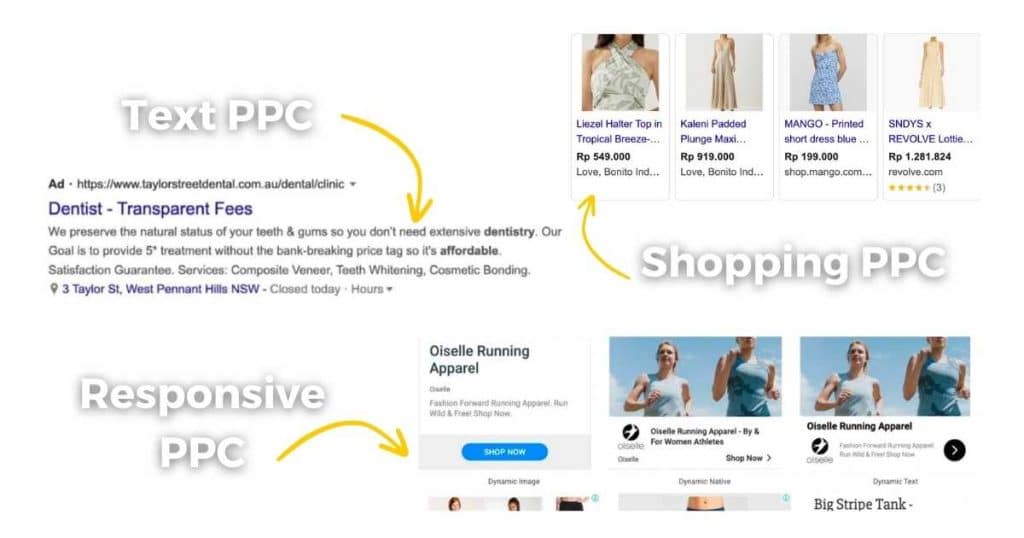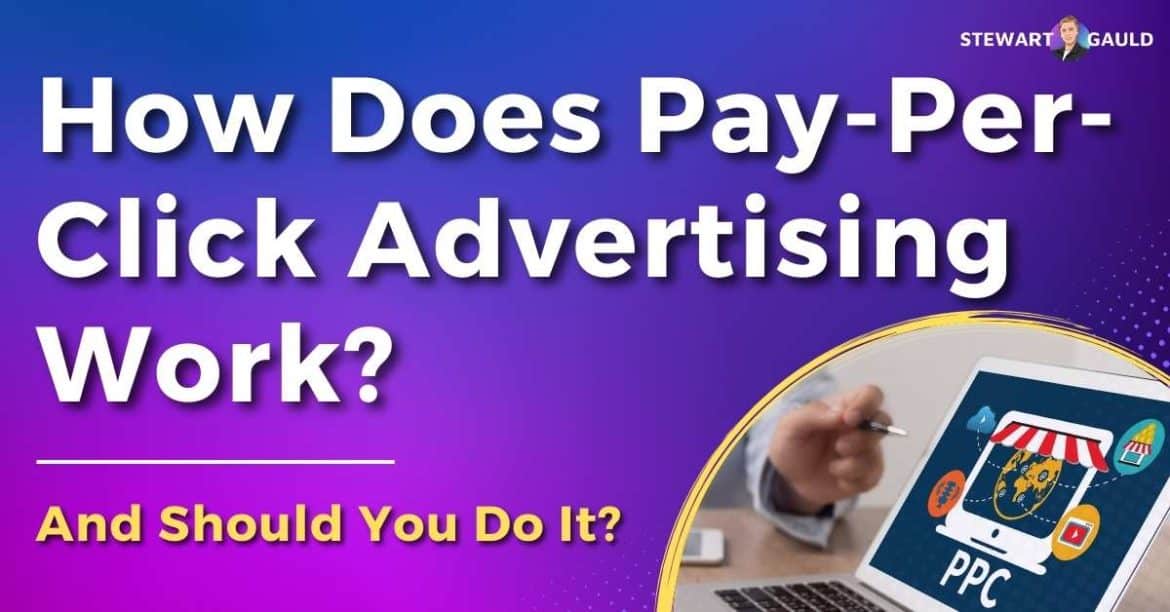What is PPC advertising, and how does it work?
If you’re ready to propel your online business to new heights, pay-per-click (PPC) advertising is the game-changing marketing strategy you’ve been waiting for!
Imagine placing ads on search engines and social media platforms and only paying when potential customers click on your ads? Sounds like the ultimate win-win situation, right?
Welcome to the world of pay-per-click advertising.
Read more: Top 10 FREE Digital Marketing Tools For Small Businesses.
Quick Summary
- PPC advertising is an effective digital marketing strategy involving advertisers running ads and paying for them only when someone clicks them.
- PPC advertising can help you quickly grow your online visibility, whereas SEO is better for long-term growth.
- You can run PPC ads on Google (and other search engines), social media platforms, and marketplaces.
What Is Pay-Per-Click Advertising?

Originally made famous by Google, PPC is a quick and effective way to advertise your business online.
The most profitable PPC advertising is through Google Ads, which allows you to promote your products or services on Google.
But PPC is not just limited to search engines like Google!
PPC is available on most search engines, social media channels such as Facebook, Instagram, Twitter, TikTok, and YouTube, and marketplaces like Etsy and Amazon to extend your PPC campaigns’ reach.
This dynamic advertising tool allows you to target specific demographics, locations, and more. And the best part is that you only pay a fee when someone clicks on your ad!
Unlike SEO (search engine optimization), which takes time to improve your website rankings, PPC ads can appear at the top of the search engine results page (SERP) instantly!
Essentially, this marketing strategy helps drive website traffic, conversions, and leads super quickly.
Read more: How To Setup Google Ads Conversion Tracking In WordPress.
How Does Pay-Per-Click Advertising Work?

The beauty of PPC is that you only pay when someone clicks on your ad, meaning you have nothing to lose!
So, how does it all work?
The PPC advertising process consists of four key elements. Here’s how it goes down:
- When someone searches for something, an ‘ad auction’ takes place in the background of search engines. Basically, advertisers compete by ‘bidding’ on specific keywords, the quality and relevance of their ads, and more. The ad with the highest bid and strongest ad quality wins the auction. This all happens in a split second between the user searching and clicking on the ad!
- Next, once an ad wins the auction, it’s displayed on the search engine results page or relevant websites. You’ve probably seen these ads labeled as ‘Ad’ or ‘Sponsored’ (to differentiate them from organic search results).
- As mentioned, you only pay when someone clicks on your ad. The amount you pay for each click is called CPC (cost per click). The CPC can vary based on factors like keyword competitiveness, ad quality, and how relevant your ad is to what the user is searching for.
- As an advertiser, you have full control over your PPC campaigns! You can set your budget, choose your bidding strategy, create compelling ad content, and select your target audience. This level of control means you can effectively manage your ad spending on a daily or monthly basis.
With PPC advertising, you have the power to reach your target audience effectively and efficiently while staying in control of your budget and ad content – pretty impressive, right?
PPC truly is a powerful tool to drive results and help your business thrive in the competitive online landscape!
Read more: How To Set Up Google Ads Tracking For Wix.
How Much Does PPC Cost?
Unfortunately, there is no one-size-fits-all answer when it comes to PPC pricing.
Depending on the ad network, audience, and keyword competitiveness, PPC campaigns can cost anywhere from $1 to $20.
To get the most out of your PPC campaigns, you should set a clear budget on how much you want to spend, conduct thorough keyword research, and bid strategically on those keywords.
The ad auction landscape can be pretty competitive, so I advise you to really think about your budget allocation before bidding!
Read more: How To Do Keyword Research.
Does PPC Work?
The short answer is….yes!
If you’re doing it right, PPC advertising gives you a competitive edge in the digital marketing arena.
Firstly, With PPC, you only incur costs when someone clicks on your ad. This guarantees that your budget is used wisely.
PPC also enables precise targeting based on various factors, including keywords, demographics, interests, and geographical locations.
This ensures that ads reach an interested and relevant audience, maximizing your conversion rates!
Additionally, you have access to real-time analytics tools to monitor the performance of your ads, meaning you can accurately measure the ROI (return on investment).
Read more: Is Google Sites Good For SEO?
PPC Examples

Now you know what PPC advertising is and how it works, you’ll notice PPC ads everywhere!
There are many different types of PPC ads, but for the purpose of this article, we’ll just focus on some of the most popular Google examples.
Text PPC Ads:
Text PPC ads are the traditional paid search text ads you’ve probably seen at the top or bottom of your Google search page that often have ‘Ad’ next to them.
You can enhance these ads by highlighting deals or sales, links to direct traffic to a particular web page, or adding a call extension to stimulate phone calls.
Responsive PPC Ads:
Responsive display ads are dynamic paid ads that you may have seen on the side of a website page.
The great thing about these ads is that you can adapt their size, format, and copy to fit the website where they are displayed.
Simply provide different options for headlines, copy, and images, and Google will create the most effective combination (based on the website from its Google Display Network).
Shopping PPC Ads:
Shopping ads are designed for eCommerce advertisers to showcase their products and are usually found within traditional search results and the dedicated ‘Google Shopping’ tab.
These ads include essential product details like the price, product photo, rating, and shipping information.
Video Ads:
If you’ve ever watched YouTube, you would have seen these PPC video ads at the beginning, middle, or end of a video.
They can be either skippable or non-skippable and are an awesome way to captivate your audience through video content.
These are just some of the most popular PPC ads, but there are many other PPC ad types that you can read about here.
My Final Thoughts
And that is all you need to know about how PPC advertising works!
I believe PPC advertising is a powerful and adaptable online marketing technique.
With PPC, you have the potential to generate more traffic, increase your online brand visibility, and yield measurable outcomes.
With the ability to specifically target audiences and obtain quantifiable data, PPC is an indispensable asset for achieving marketing goals!
Plus, paying only for actual clicks allows you to reach your desired audience without breaking the bank.
So, don’t wait any longer!
Dive into the world of pay-per-click advertising and unlock the immense potential it holds for your business’s success.
Frequently Asked Questions
What’s The Difference Between Cost-Per-Click vs Pay-Per-Click?
PPC stands for Pay-Per-Click, a type of online advertising where advertisers pay for each click on their ad.
On the other hand, CPC stands for Cost-Per-Click, which refers to the actual cost you pay for each click your ads receive.
Should You Run SEO Or PPC Ads?
SEO is an excellent way to increase your online presence long-term, while PPC ads are better for driving traffic to your site quickly.
Therefore, I recommend combining PPC and SEO into your online marketing strategy to amplify your online presence!
Both strategies increase your chances of capturing potential customers at different stages of their purchasing journey.
What Is The Most Used PPC Platform?
Google Ads is undoubtedly the most used and effective PPC platform, as Google has a significant market share in the search engine realm.
By using Google Ads, you can display your ads across Google’s vast network, including search results, websites, and apps.
However, other PPC platforms include Facebook Ads, Amazon Ads, and Microsoft Advertising.

